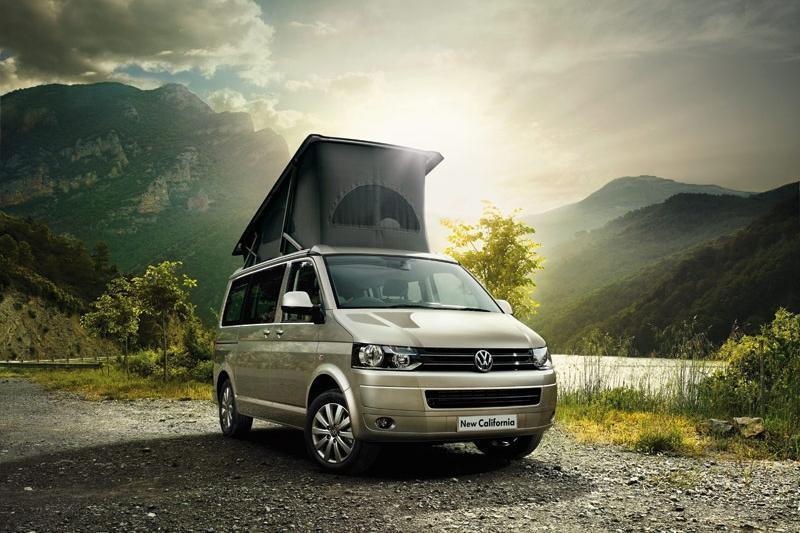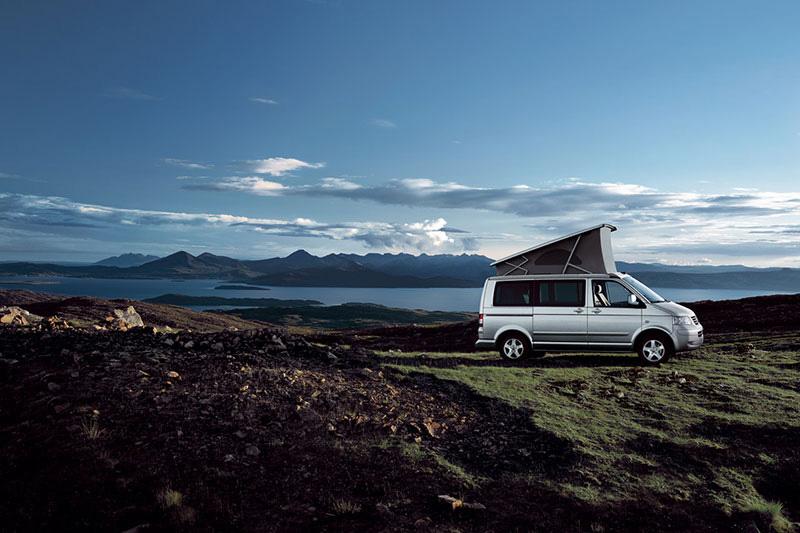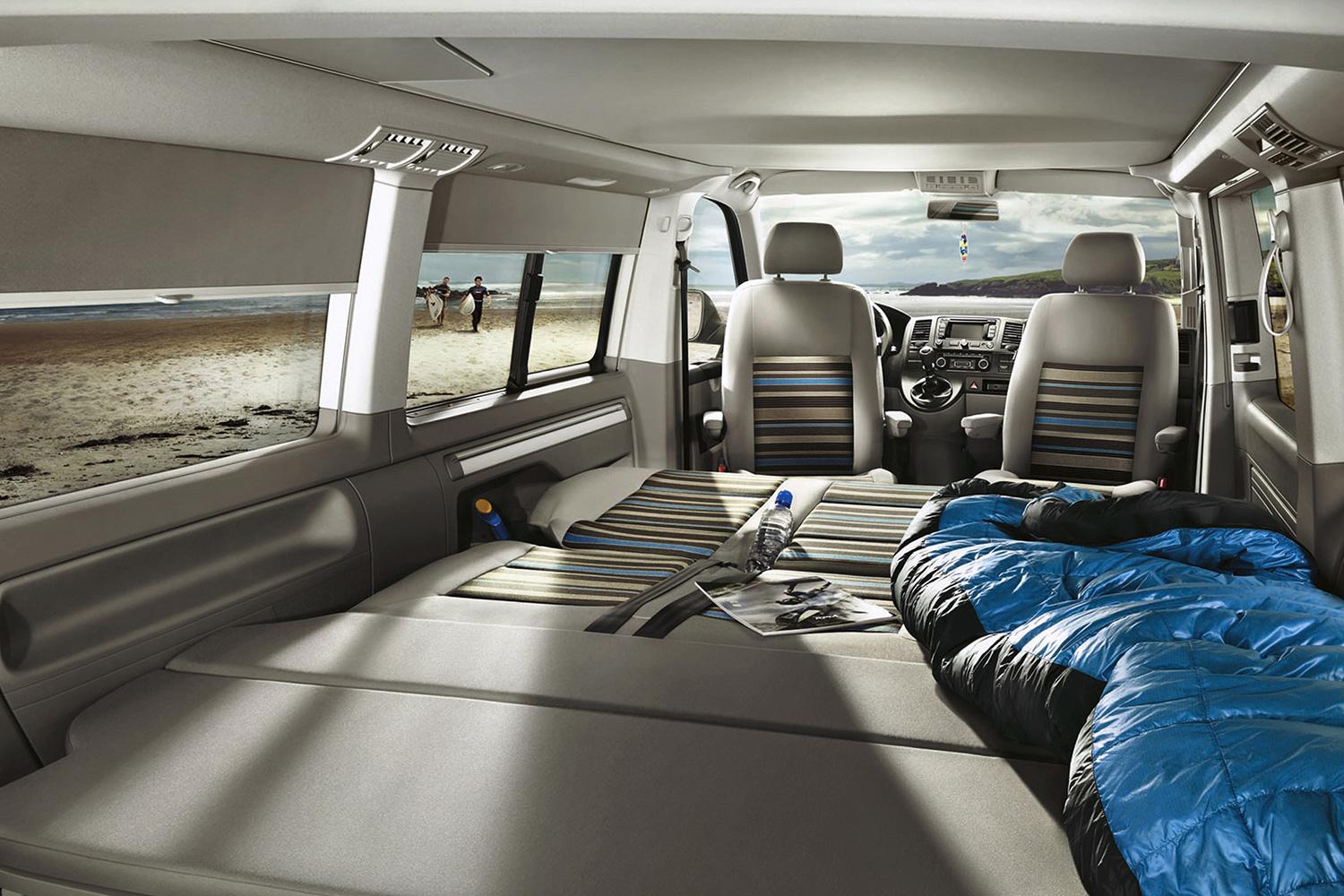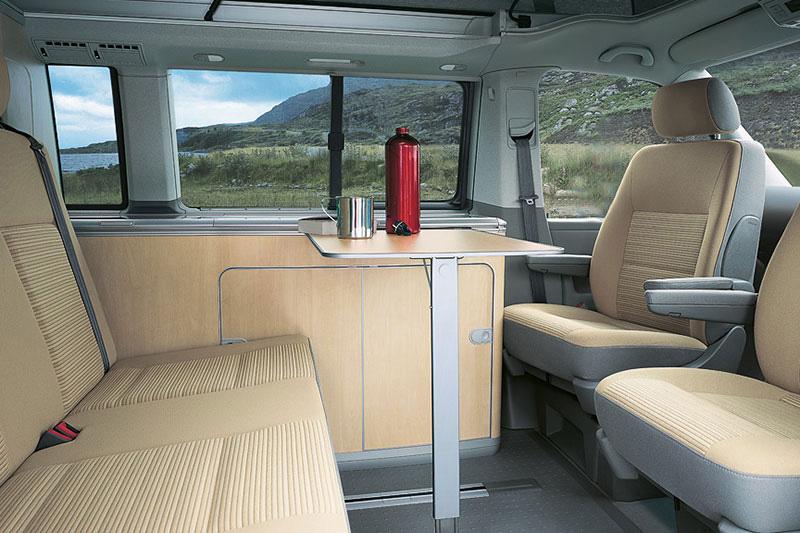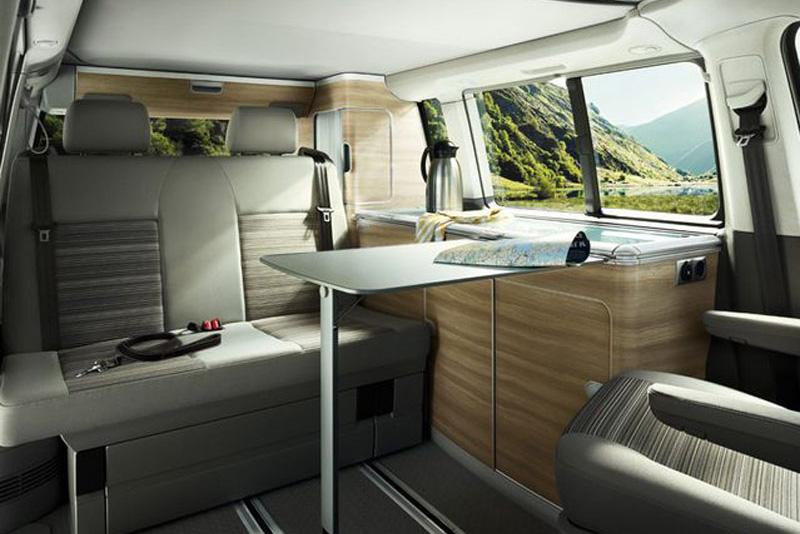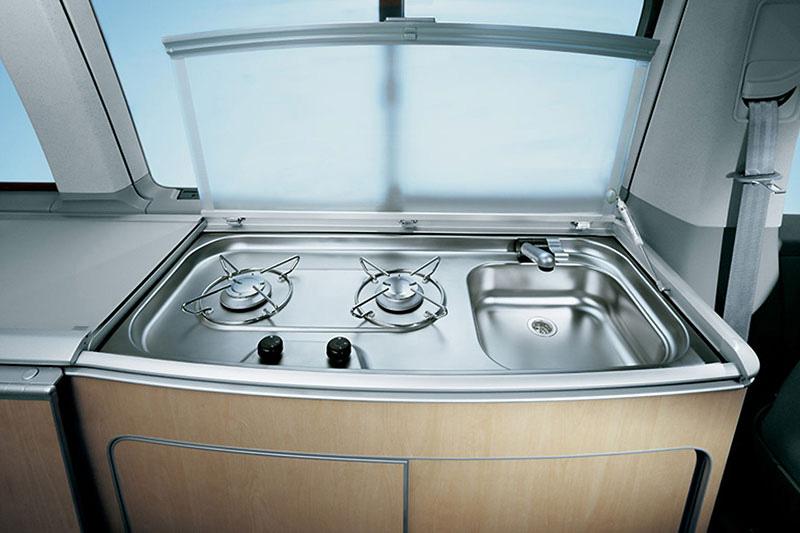
A start/stop system keeps fuel economy in check regardless of what’s under the hood.
Designed as a house on wheels, the base California comes standard with a pop-up top that can sleep two people, a removable picnic table built into the sliding door and a set of chairs cleverly hidden in the hatch. More expensive models up the ante with niceties such as a full kitchen, a stainless steel sink, a small fridge, and a two-burner stove.
Interior pictures have not been published yet but Volkswagen promises buyers can choose whether they want two, five, or seven seats, and all models feature storage bins scattered throughout the cabin. Properly equipped, the California can put a college dorm room to shame in terms of space and features.
Like the Transporter, the California gains a new 2.0-liter TDI turbodiesel four-cylinder mill that can be ordered with either 83, 100, 147 or 201 horsepower. Volkswagen promises a handful of gasoline-burning four-cylinder engines will join the lineup later in the production run, but additional details are being kept under wraps for the time being.
Front-wheel drive and a manual transmission both come standard, but customers can order the camper with a dual-clutch DSG transmission controlled by shift paddles, Volkswagen’s 4Motion all-wheel drive system or both. A start/stop system keeps fuel economy in check regardless of what’s under the hood.
On sale now in Germany, the Volkswagen California carries a base price of 41,429 euros, a sum that converts to roughly $46,500. Hold on to your rear-engined Bus if you want to go camping in a Volkswagen, because the California isn’t expected to land on our shores any time soon.
Editors' Recommendations
- 2022 Volkswagen ID. Buzz first drive review: The iconic hippie hauler goes electric
- Volkswagen ID. Buzz prototype first drive: Here comes your van
- Argo AI puts a high-tech spin on Volkswagen’s retro ID.Buzz van
- Volkswagen’s celebrated Golf GTI returns with more power and new tech
- Uber’s new dial-a-cab feature is basically just an old-school taxi service
